We asked London’s top wealth managers for the new golden rules of investment
Wondering where you should be putting your money during this uncertain financial period? We ask the capital’s top firms for answers.
Graphs. They’re everywhere at the moment, aren’t they? If they’re not charting how much debt the world is running up for itself, they’re reporting how many businesses are unlikely to ever reopen — or how many people around the globe have contracted this thoroughly vexing virus. Statisticians have become our harbingers-of-doom-in-chief. In fact, at the moment, we can’t even glimpse a graph without wincing. But could this be losing us money?
True, while the wiry lines of corona cases rise, the stock markets generally appear to be falling. There are, of course, exceptions — home grocery delivery service Ocado’s stock hit an all-year high last month, and fledgling video conferencing tool Zoom saw its five-year peak — but most companies, from banks to breweries, are struggling.
So what does this mean for prospective investors? Whether you’ve been investing wisely for decades — or had just begun to flutter with your finances before the pandemic hit — we could all do with a little guidance during this uncertain economic period. Because, like it or not, the fiscal goalposts have shifted. That’s why we turned to some of London’s top financial experts and firms, and asked them to lay down the new golden rules of investment.
Rule # 1: Don’t try to time the markets precisely
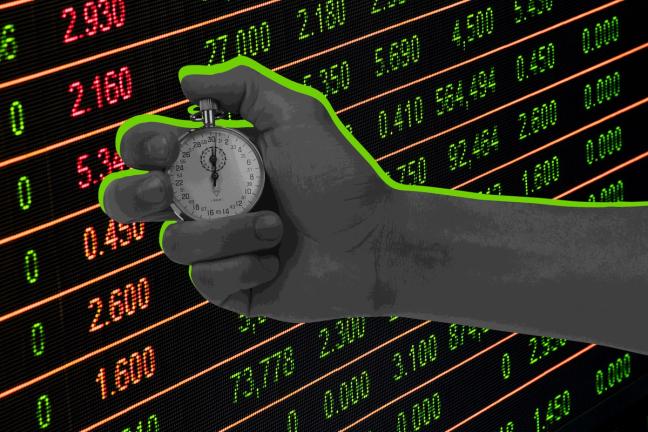
What’s that? The thought of moving your money amidst a global pandemic has you slightly hot under the collar? Of course it does. But there’s no money in nerves, Rob Morgan, Investments Analyst at Charles Stanley, tells us. Because market recovery is undoubtedly coming — and you have to be in the game to benefit from the upswing.
“Although shares could fall further in the near term,” explains Morgan, “they could also bounce substantially if a credible view develops that normal life will resume after a shorter period of disruption. I would therefore caution against trying to time the market precisely, as you are never going to know where the bottom is until it has long passed.
“On a longer term view,” he adds, “say ten years, it shouldn’t matter too much to your returns anyway. If the thought still makes you nervous, one way to counter market ups and downs, as well as take some of the stress out of investing, is to contribute money at regular intervals. For instance, once a month, rather than a lump sum in one go. The strategy can even turn market volatility to your advantage as you ‘average down’ if prices fall further in the shorter term.”
Rule # 2: If you’re still nervous, invest gradually
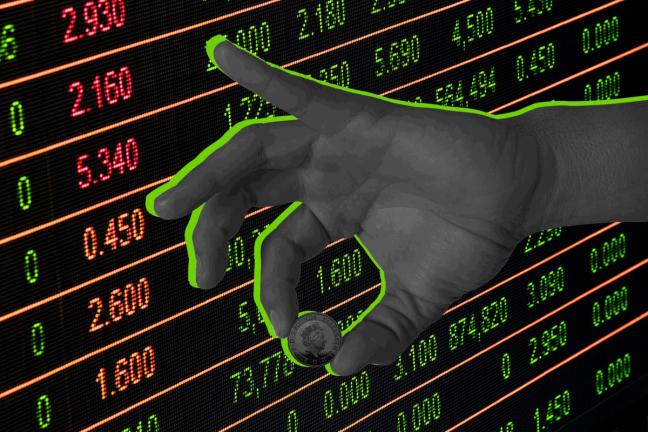
Of course, the markets aren’t going to stabilise for some time. And, if given the choice between going big or going home during the lockdown is likely to turn you off any sort of investment, there is another way. It may not see you enjoy life-changing returns, but according to Rachel Winter, Associate Investment Director at Killik & Co, investing cautiously and consistently will still ensure you don’t miss the best opportunities entirely.
“Those with new cash to invest should consider starting to feed that cash into the market on a gradual basis,” says Winter. “As long as they can accept that continued market volatility is almost inevitable. In our view, equity investing is only suitable for those with a time horizon of at least 3-5 years, and that remains especially true during this period of heightened volatility.
“Markets are forward-looking,” she continues, “and they have already started to rise on the first hints the pandemic is beginning to stabilise. When the worst is over, the best investment opportunities are likely to have been missed.”
Rule # 3: Existing investors should stay put — even if it feels uncomfortable
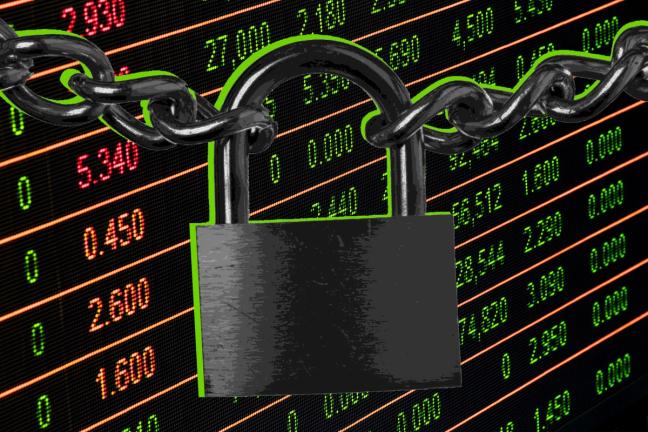
In the same way that we all escaped from our offices to the relative safety of home, COVID-19 will likely have you wanting to pull your money out of any investments and squirrel it away to somewhere more stable. But, we’re told by Sarah Coles, Personal Finance Analyst at Hargreaves Lansdown, that this approach would just be setting you up for a fall.
“If you already have investments,” Coles explains, “the key is not to panic, and instead focus on why you’re investing. Usually we’re putting money aside for the long run. We know shares have their ups and downs in the shorter term, and we’re prepared to face that in return for the fact they tend to do better than cash over longer periods.
“None of that has changed,” she reveals. “It’s just we’re seeing some unusually big falls in the short term. It can be a good time to think about your investments, and whether you have a broad enough spread of funds — but, if you have a diverse portfolio and a long time horizon, then the best thing you can do is sit tight, so your money is still in the market and poised to take advantage of gains.”
Rule # 4: Invest in socially responsible portfolios
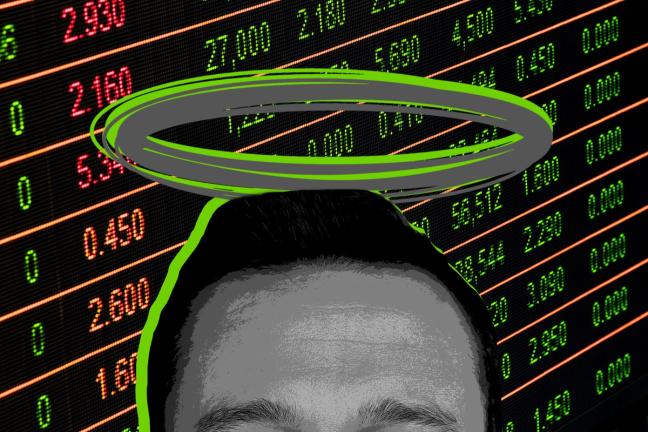
With the number of food-dropping volunteers, elder carers and NHS-thanking doorstep clappers reaching record levels, Great Britain has stepped up to see off this pandemic. And our good nature and wholesome values can be seen reflected in the markets. James McManus, Chief Investment Officer at Nutmeg, tells us that he has seen an increased demand for socially responsible portfolios.
“People are looking at what they’re investing in,” McManus adds, “to see whether it aligns to their values. For example, customers — now more than ever — want to quickly and easily understand what their investment is doing for the world as well as for their wealth.”
According to Nutmeg’s recent research, the CIO continues, investors rate social concerns, such as working conditions and human rights abuses, as the most important. Over half (54%) even said they would ‘very likely’ change their high return portfolios if they discovered they didn’t support positive behaviour in these areas. “As consumers are looking at the way big businesses are responding to the current crisis,” McManus says, “we would expect interest in our socially responsible portfolios to continue to increase.”
Rule # 5: Not all ‘safe’ investments are still safe
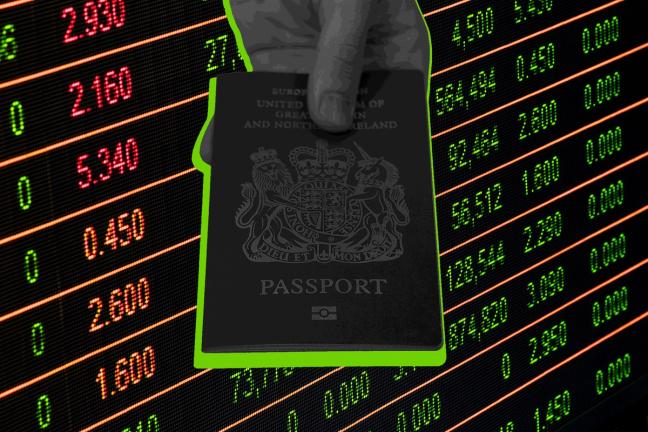
All you need do is step outside your front door — if you dare — to see that this is a brave new world. No longer can we pop to the pub, visit friends or family, or even shop together. The very definition of safety has shifted. And, with it, traditionally ‘safe’ investments. Good bets and guaranteed tips have always guided the markets, but Rachel Winter, Associate Investment Director at Killik & Co, warns us that this may no longer be the case.
“Our current lockdown situation is completely unprecedented,” says Winter, “and it will have done great damage to many companies that were previously viewed as reliable or safe investments. The growth in global travel, for example, was previously a widely accepted trend and many invested accordingly. However, the coronavirus has covered this with a cloud of uncertainty, and it is now very difficult to say what the future will hold for airlines, hotel groups and cruise companies.”
It’s a troubling outlook — especially given how healthy the travel industry looked even mere months ago. But Winter explains that this shouldn’t necessarily stop you investing. Rather, savvy financiers are now simply being more specific with their investments. “Major stock indices are full of businesses with newly uncertain futures,” she adds, “and for this reason we prefer to select individual stocks rather than simply buying the market.”
Rule # 6: Look to invest in what you’re using day-to-day

Advising we select individual stocks is all well and good, but which ones? Even industries you’d expect to thrive during a lockdown are in flux, with even the most seasoned financial forecasters struggling to get a handle on what exactly to expect day-to-day. Emma Wall, Head of Investment Analysis at Hargreaves Lansdown, breaks it down for us.
“Oil and gas companies have dealt with the blow of a falling oil price,” Wall begins, “following the Russia-Saudi standoff. Banks and other financial businesses have also been impacted due to existing concerns over the strength of Eurozone banks and their ability to withstand this crisis without sufficient support from other central banks.”
So what hasn’t seen trouble? According to Wall, telecoms, technology and food companies — things still in everyday use. “Food producers and healthcare companies,” she adds, “have held up relatively well, as demand for food and medicines remains buoyant. So have telecoms and utilities businesses, which are typically favoured for their more defensive characteristics in times of trouble. Some technology companies are also benefiting, especially as we look for new ways to shop, communicate, and entertain.”
Rule # 7: Sustainability is a good bet for investment

As well as your everyday and entertainment options — Disney has seen a marked uptick since Disney+ launched in Britain on March 24 — there are a handful of other, more surprising niches seeing a boost. Rob Morgan of Charles Stanley reveals that everything sustainable seems to be having something of a moment.
“As well as furthering the digital revolution,” Morgan explains, “there could be a related and lasting impact as people and companies rethink lifestyles in the context of sustainability. One example is what counts as essential business travel. Many are finding that their experience of working from home is positive and that most business meetings can be conducted satisfactorily using online video conferencing tools. Not only are there cost savings involved in cutting down the number of journeys, but it’s a way that businesses can cut carbon emissions – particularly in the case of international travel.
“At the very least,” he adds, “it highlights there are other, more sustainable ways to live our lives. It’s another avenue of disruption and opportunity that is likely to open up.”
Rule # 8: There are still ways to play it safe, from cash to government bonds

While Killick & Co’s Rachel Winter told us that traditionally ‘safe’ investments may not be the sure things they used to be, James McManus of Nutmeg reveals that there are other ways to play it safe — especially if your nerves are getting the better of you during this unsettling spell.
“At Nutmeg,” McManus explains, “we build portfolios that are invested across global financial markets, allowing us to spread the risk across a broad range of countries, economic sectors and companies. We have maintained our long-term level of exposure to government bonds, typically seen as some of the safest investment assets — bonds tend to gain when there is market volatility. We also currently hold more cash in portfolios than we would expect to hold over the long term. Cash can be a useful asset during periods of extreme volatility as it can be deployed very quickly with no trading cost or market impact.”
Playing the markets from your home office? Here’s what you need for the ideal locked-down set-up…
Join the Gentleman’s Journal Clubhouse here.

Become a Gentleman’s Journal Member?
Like the Gentleman’s Journal? Why not join the Clubhouse, a special kind of private club where members receive offers and experiences from hand-picked, premium brands. You will also receive invites to exclusive events, the quarterly print magazine delivered directly to your door and your own membership card.


